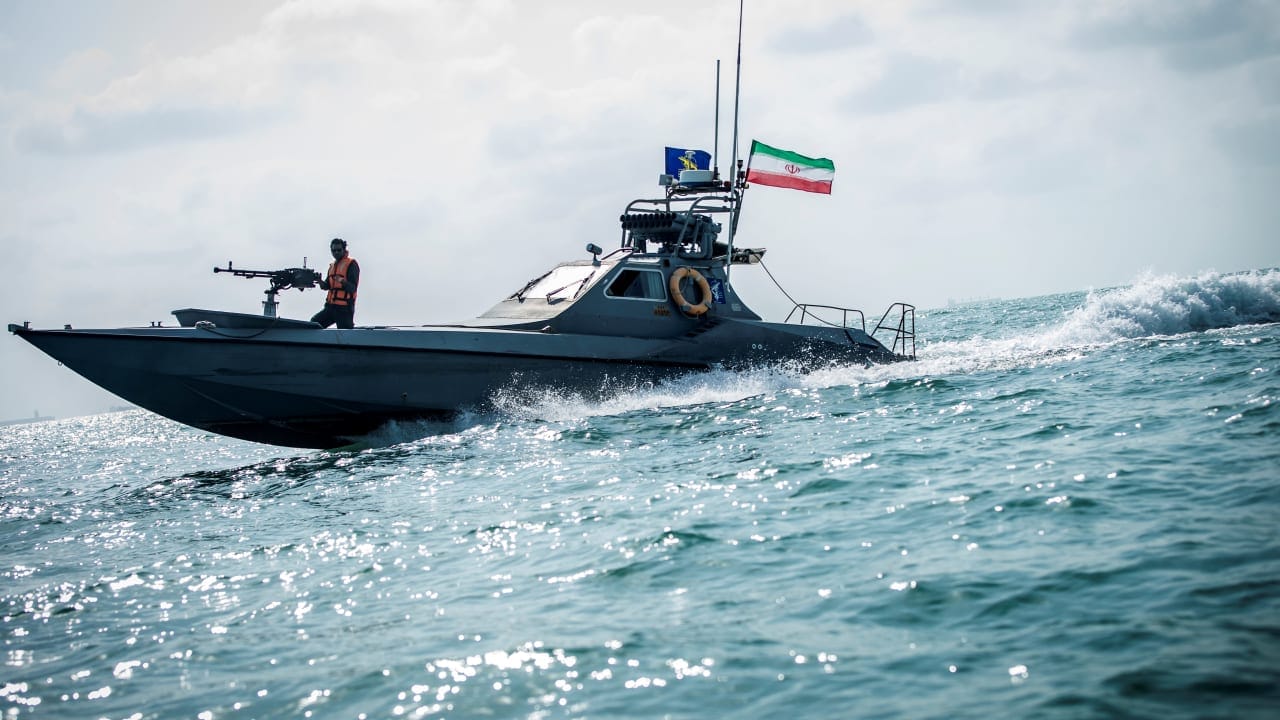Iran’s IRGC Confirms Gulf Oil Tanker Seizure — Incident Raises Maritime Security and Regional Tensions
IRGC interception of the Talara signals a new phase of Iranian escalation in the Strait of Hormuz, prompting expected reactions from the UAE, US, and Israel.

ERBIL (Kurdistan24) — Iran’s Islamic Revolutionary Guard Corps (IRGC) on Saturday confirmed it had intercepted and seized an oil tanker off the country’s southern coast, in what observers say marks a significant escalation in Tehran’s assertive maritime strategy. The operation came a day after private security firms assessed Iran as the likely perpetrator of the incident.
According to an IRGC statement, the Talara—a Marshall Islands–flagged tanker carrying 30,000 tonnes of petrochemical cargo—was seized at 7:30 a.m. local time after what Tehran described as a “judicial authority order” authorizing confiscation of the vessel’s cargo.
The tanker was reportedly en route from Ajman in the United Arab Emirates to Singapore when it was approached by three small Iranian boats, prompting a “sudden course deviation,” maritime security company Ambrey reported.
The IRGC accused the vessel of “carrying unauthorised cargo” in violation of Iranian law, while providing no further details on the alleged infraction.
The US Navy’s 5th Fleet, which oversees operations in the region, said it was “actively monitoring the situation,” reiterating that commercial ships are entitled to “largely unimpeded rights of navigation and commerce on the high seas.”
The Strait of Hormuz—through which nearly one-fifth of global oil trade flows—has long been a flashpoint in Iran’s geopolitical standoff with the West. By targeting vessels linked to regional adversaries or accused of breaching its regulations, Tehran leverages the waterway’s strategic vulnerability to assert pressure without resorting to direct conflict.
Saturday’s seizure follows a string of similar incidents, including Iran’s interception of a container ship last year over alleged links to Israel, shortly after an Israeli attack on Iran’s consulate in Syria.
Military experts view the Talara incident as part of a calibrated pattern: Tehran testing the limits of maritime coercion while signaling its readiness to retaliate against perceived threats.
The escalation has broader implications for international maritime freedom, raising concerns among shipping companies and global energy markets. Each Iranian seizure reverberates far beyond the Gulf, triggering insurance spikes, route recalculations, and heightened naval patrols.
The lack of an effective deterrent—despite years of US and allied monitoring—emboldens Tehran to continue leveraging maritime assets as tools of geopolitical messaging. The incident also risks undermining the global principle of freedom of navigation, a cornerstone of international trade.
With Iran asserting increasingly expansive maritime claims, commercial vessels—especially those linked to Gulf states or Western partners—face growing uncertainty transiting the world’s most sensitive oil corridor.
The UAE, whose ports and petrochemical exports are critical to the region’s economy, is likely to issue strong diplomatic protests. However, Abu Dhabi has consistently avoided direct confrontation in similar past incidents, choosing instead to coordinate with the US Navy and international partners to strengthen maritime monitoring.
Privately, Emirati officials may view the seizure as a direct challenge to their commercial sovereignty, especially given the vessel’s departure from Ajman.
With tensions already high over Iran’s nuclear program and regional activities, Washington is expected to condemn the seizure as an unlawful interference with freedom of navigation.
The US Navy may increase escort operations or enhance surveillance flights over the Strait of Hormuz, seeking to reassure partners while avoiding escalation.
Although the Talara was not publicly linked to Israel, Jerusalem will interpret the incident within Iran’s broader regional strategy. Israeli intelligence officials are likely to warn allies that Tehran is expanding its coercive toolkit at sea, not just on land.
Depending on the intelligence assessment, Israel may respond indirectly by targeting Iran-linked assets elsewhere—or by urging Washington to tighten military and economic pressure on Tehran.
As Iran expands its maritime assertiveness, Gulf waters risk becoming a more dangerous theater for international commercial shipping. Each incident chips away at the predictability of global energy flows and increases the likelihood of miscalculation between Iran and rival states.
The Talara seizure demonstrates that Tehran remains willing to use the Strait of Hormuz as both leverage and battlefield, complicating diplomacy at a time when regional tensions are already running high.